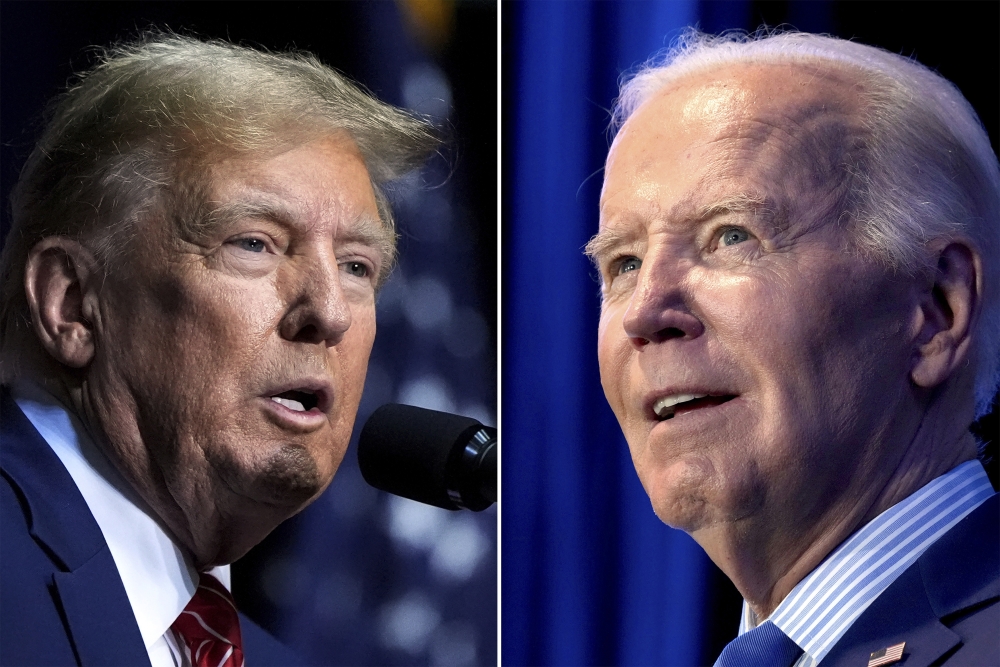Are you better off now than you were four years ago? This series of opinion pieces seeks to answer this question by examining key parts of our daily lives. Nothing is more essential to feeling better off than having timely health care available to your family when they need it. It’s no wonder health care has become a key “dinner table” issue in political campaigns.
Health care has been at the center of the national debate since President Truman, and various models of public/private insurance were repeatedly proposed from President Nixon onward, but none were successful until President Obama’s Affordable Care Act (ACA).
Obamacare expanded health insurance coverage to an additional 20 million people, but its mandates, Medicaid expansion, and regulatory requirements have angered conservatives. When President Trump was elected, he vowed to repeal Obamacare (there was no other option), but Congress missed the mark by one Republican vote. Still, President Trump created policies that dismantled parts of Obamacare that many of you rely on, like open enrollment, premium subsidies, and the individual mandate, and cut benefits in state Medicaid programs. Instead, he promoted Associated Health Plans for small businesses and tried to contain drug costs.
But we are now witnessing a remarkable resurgence of Obamacare. Despite the failure of the repeal movement, the favorable parts of the ACA began to gain support. It turns out that the public really liked expanding access to health care, providing insurance coverage for young people, and protecting pre-existing conditions.
President Biden campaigned hard on the success of Obamacare and was successful in significantly expanding it after his election. He also pushed for important expansions of Medicaid and the Children’s Health Insurance Program that have been adopted by many states, including Maine. In 2024, approximately 40 million people are expected to be covered by the ACA or Medicaid expansion. You may be one of the approximately 170,000 Mainers who have benefited from these expansions.
The prohibitive cost of medicines has also caught the attention of consumers and politicians. Trump tried to cap the price of insulin, but it was limited and voluntary; only 38% of Medicare drug plans participated. Biden has put forward a more comprehensive policy, mandating a $35 per month cap on all insulin types and doses, saving patients hundreds of dollars per year. This would be a huge benefit to Maine residents, as the state has the third-highest rate of type 1 diabetes (which requires insulin treatment) in the nation.
Additionally, Biden signed legislation requiring Medicare to negotiate drug prices for its 50 million insured members, something the Department of Veterans Affairs has done since 1993. Negotiating with drug companies is likely to yield huge cost savings.
So how has this back-and-forth in health care affected the average Mainer? Certainly, as the state with the highest aging population, Maine would benefit greatly from lower drug prices in its Medicare plan. And there’s even more good news for Maine on health insurance: Thanks to ACA enrollment, Medicaid expansion, and premium tax credits, a record number of Mainers are insured today. By 2025, more than one million Mainers will have private, ACA, or public health insurance.
However, it is important to keep in mind that expanding insurance coverage through private insurance, Obamacare, Medicaid, Medicare, etc. does not necessarily improve access to health care, such as primary care clinicians, emergency department visits, mental health counseling, hospital care, medications, etc. Health insurance is necessary but not necessarily sufficient to improve access to health care.
In Maine, insurance coverage has expanded but access to care has decreased. The COVID-19 pandemic has reduced the number of health care providers in Maine and the United States due to burnout and early retirement. Patients have delayed care during the COVID-19 outbreak, putting pressure on the health care system to address health issues that have now been ignored. Meanwhile, the COVID-19 pandemic has actually contributed to population growth in Maine through migration. Now, many people with expanded insurance coverage are seeking more care from fewer doctors, a perfect storm.
Clearly, we need more health care workers at all levels. The good news is that the Biden Administration has proposed some improvements known to work in rural states like Maine: increased funding for rural primary care training (more training slots) and a 50% increase in loan repayments for primary care providers practicing in high-need areas, of which Maine has many. Plus, there’s even more good news in Maine’s recent workforce numbers: 6,400 positions filled in the health and human services sector since May 2023.
The next election will determine the future of health care. Trump still calls Obamacare a disaster and wants to repeal it. Biden is rightly touting the success of his administration’s health care expansion and has the numbers to prove it. Both will attack big pharma and the costs of drugs.
Is your life better than it was four years ago? Since then, Mainers have gained insurance, saved money on insulin and expect to see big savings on other drug costs in the fall. And one candidate has a plan to tackle a very real crisis: a shrinking health care workforce.
For now, Biden has the lead. Who benefits? You.
Copy story link
” previous
Today’s Cartoon
Related article

